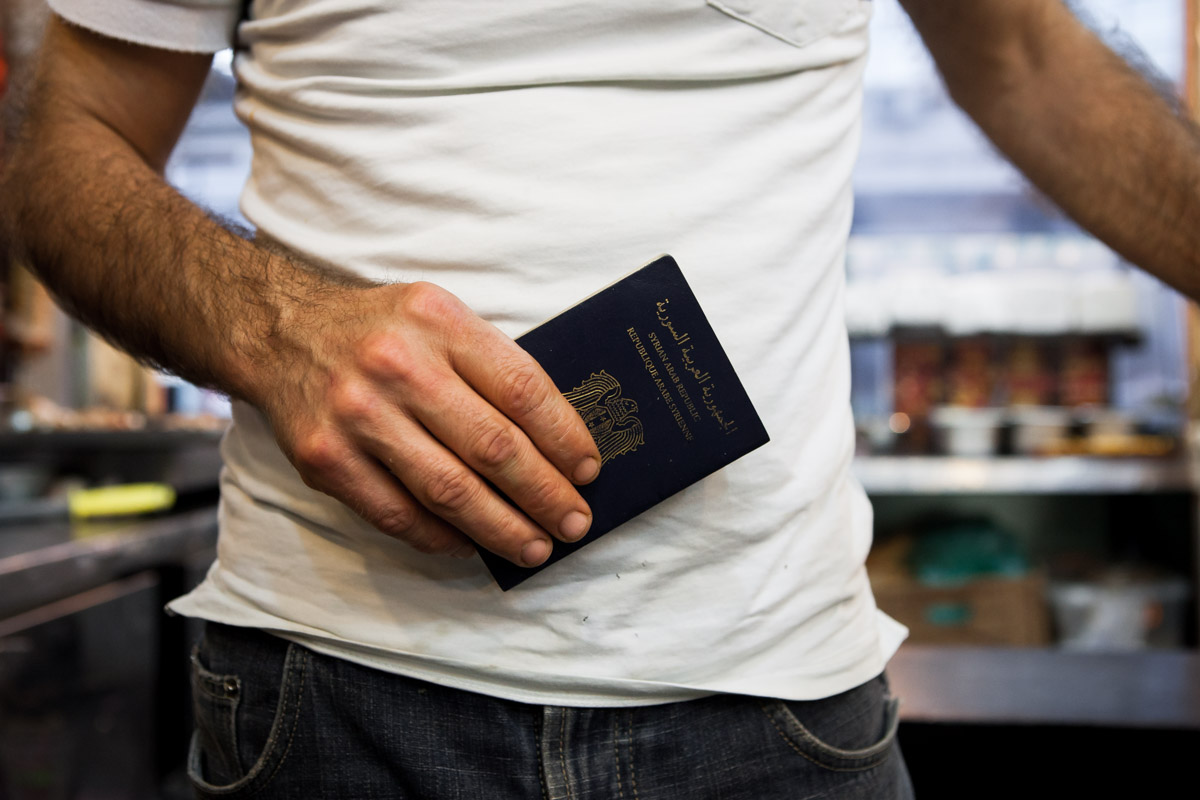Falafel in Algeria
Syrian refugees bring new restaurants
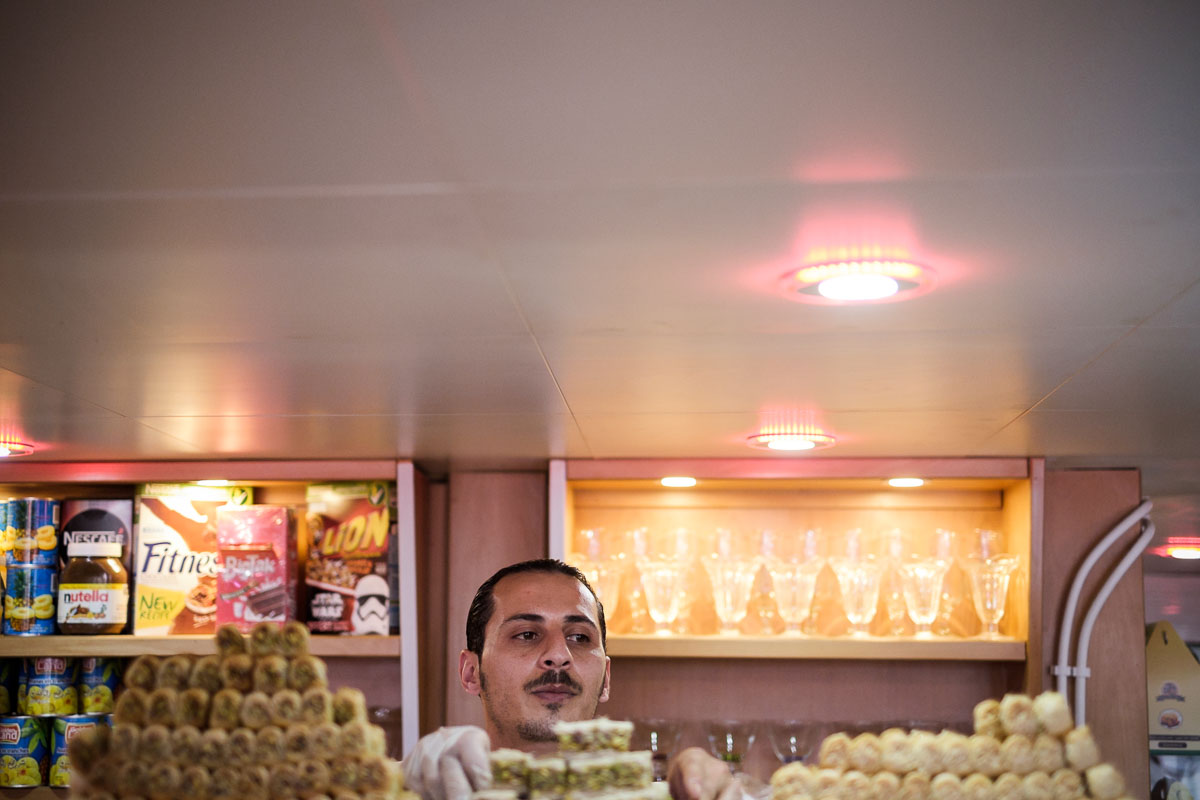
The tables inside Bawabat Istanbul, a busy Syrian restaurant with one side open to the street, fill up the moment the previous guests pack up and leave. The food arrives fast as well: carefully decorated plates with grilled meat or falafel, hummus and fries, tomatoes and salad, all sprinkled with paprika and cumin. If it weren’t for the baguettes served along with the pita, one would guess that this was in Syria. But it is not. The street outside, lined with shops and small cafés, is the main thoroughfare in Bir Khadem, a suburb in southern Algiers.
Since the war in Syria began and refugee families started arriving in Algeria, new restaurants have continued to open.
In one sense, Bawabat Istanbul is unique. It is the only place of its kind in Bir Khadem, otherwise dominated by Algerian favourites like loubiah and deep-fried sardines. But it is also typical for something bigger: the rise of Syrian food in Algeria. Since the war in Syria began and refugee families started to arrive, new restaurants have continued to open. Today, with over 40,000 refugees in the country, it is these eateries that more than anything speak of their presence.
Munir Abdallah, a Palestinian who has lived all his life in Damascus, stands behind the counter at Bawabat Istanbul, carefully putting the finishing touches to each plate before it goes out. He came to Algiers in 2012, the same year the restaurant opened.
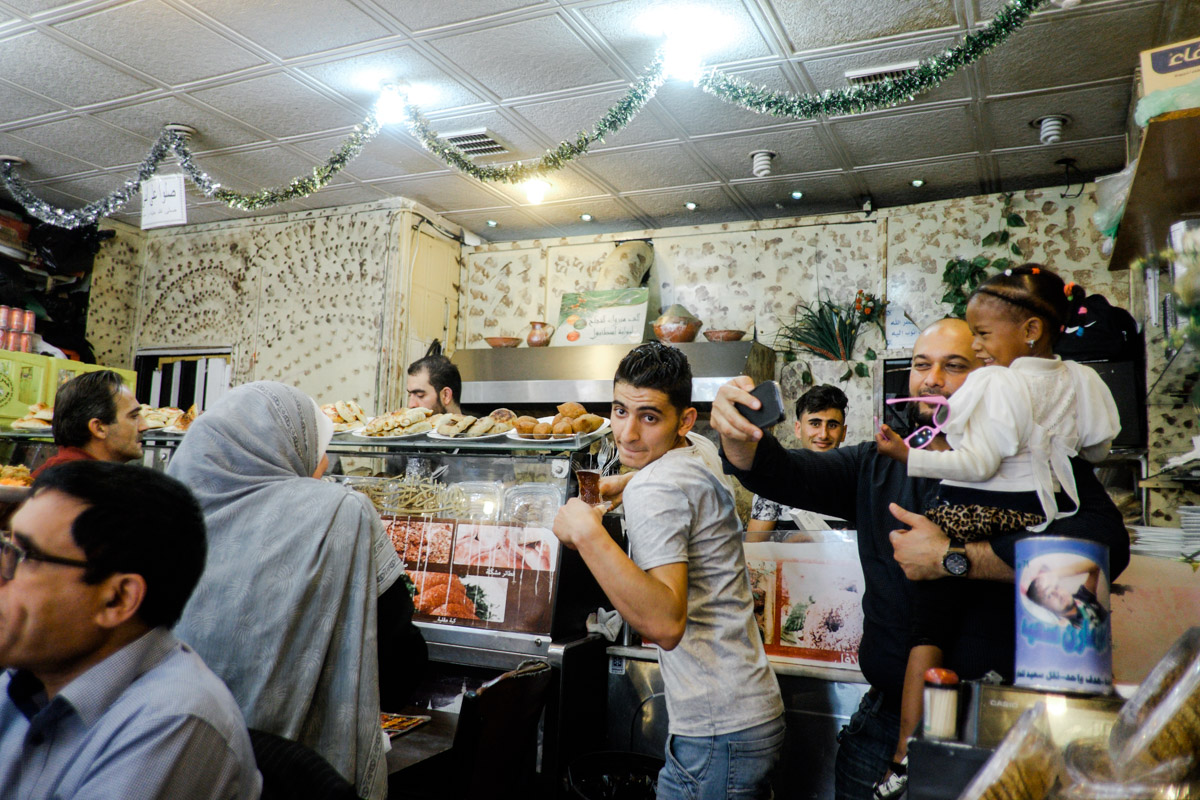
“The reason I came here is my father. He studied in Algiers when he was young, so he had links to Algeria already. When I had to leave, coming here was the best option,” he says.
Four years later, Abdallah is still in Algiers. His fiancée, also from Damascus, joined last year and is now studying at a university in Algiers.
“If we’re happy in Algeria? I don’t know what to say about that. I am, because I’m not alone here. Syrians who don’t have their families here are lonely. But we are safe, that’s the most important thing.”
“We are safe, that’s the most important thing.”
Bawabat Istanbul’s manager, Rami Turkman, walks around the tables. He exchanges a word here and there with the guests, occasionally steps out on the sidewalk where a grill is set up ahead of the evening. Turkman also came to Algeria in 2012, escaping the destruction of his hometown Homs, at the time caught in the fighting between the regime and the Free Syrian Army.
“I literally kidnapped my mum and dad. I took their passports and brought them to the airport. They would’ve never left otherwise,” he says.
Opening the restaurant became a way for him and his family to retain a sense of normality in the new country. His children go to school and have adapted fairly well. Most importantly, says Turkman, the family feels welcome in Algeria.
“I have had only good encounters here. People when they hear you speak the Syrian accent are nothing but friendly. Nobody treats you bad because you’re a refugee.”
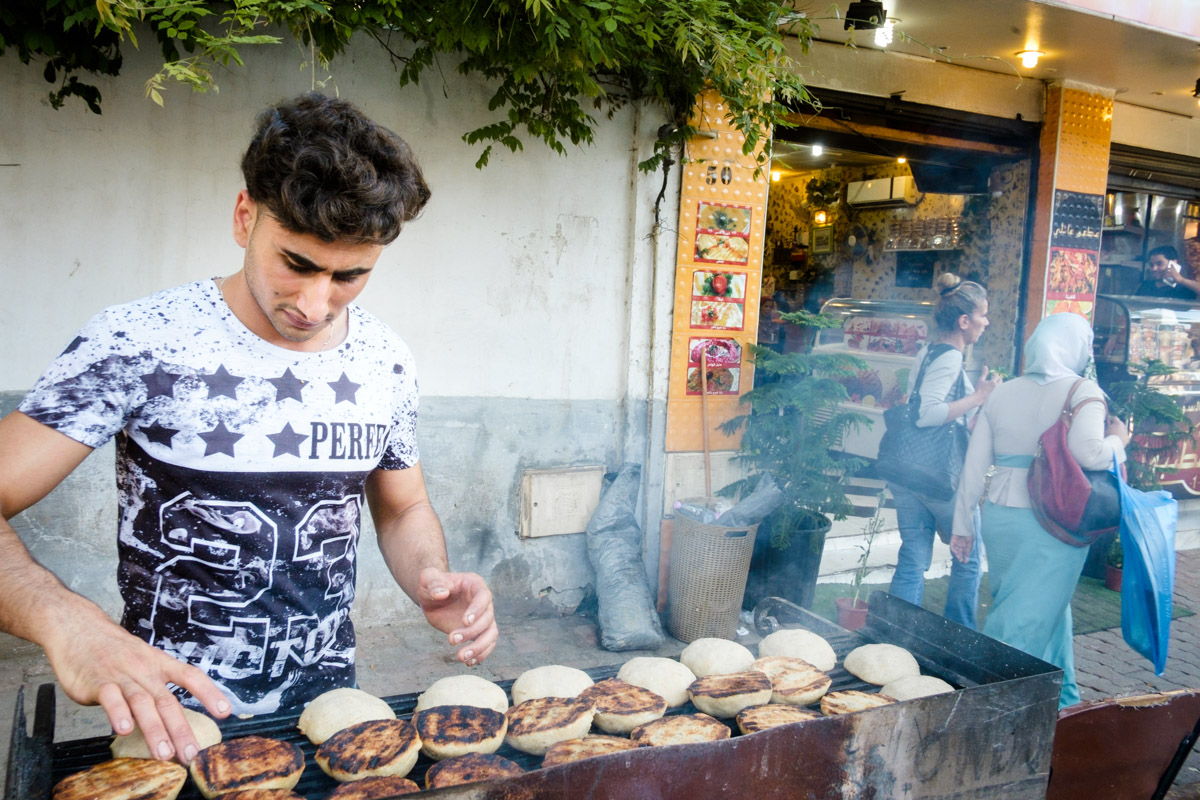
Compared with other places, Algeria is relatively good for Syrian refugees. There are no refugee camps like in Lebanon, Turkey or Jordan, and little anti-refugee sentiment. There is a strong sense of brother- and sisterhood between Algerians and Syrians, going back a long time. Few Algerians would fail to mention how Emir Abdelkader, the Algerian national hero who first resisted the French colonisers, found refuge in Damascus after imprisonment in France. Today, 150 years later, many Algerians associate Syria with popular soap operas, quality clothes – and food.
“I have had only good encounters here. Nobody treats you bad because you’re a refugee.”
At Bawabat Istanbul, the tables continue to fill up. A dad and his daughter eat shawarma from opposite ends of a big plate; groups of friends share falafel and hummus. A small girl with braids and colourful beads climbs down from her chair at one of the tables. Turkman lifts her up, takes out his phone and snaps a selfie. “For Facebook,” he says with a smile.
Suddenly, the lights go off. People stop eating for a moment, shawarmas and forks suspended in mid air. Then, a bombastic “Happy Birthday” blasts from the speakers and the lights come back on again. The waiters start singing, and one of them, Taha Maasrali, emerges from the back with a cake with lit candles. He carries it to one of the tables with teenage friends, and puts it down in front of the birthday girl.
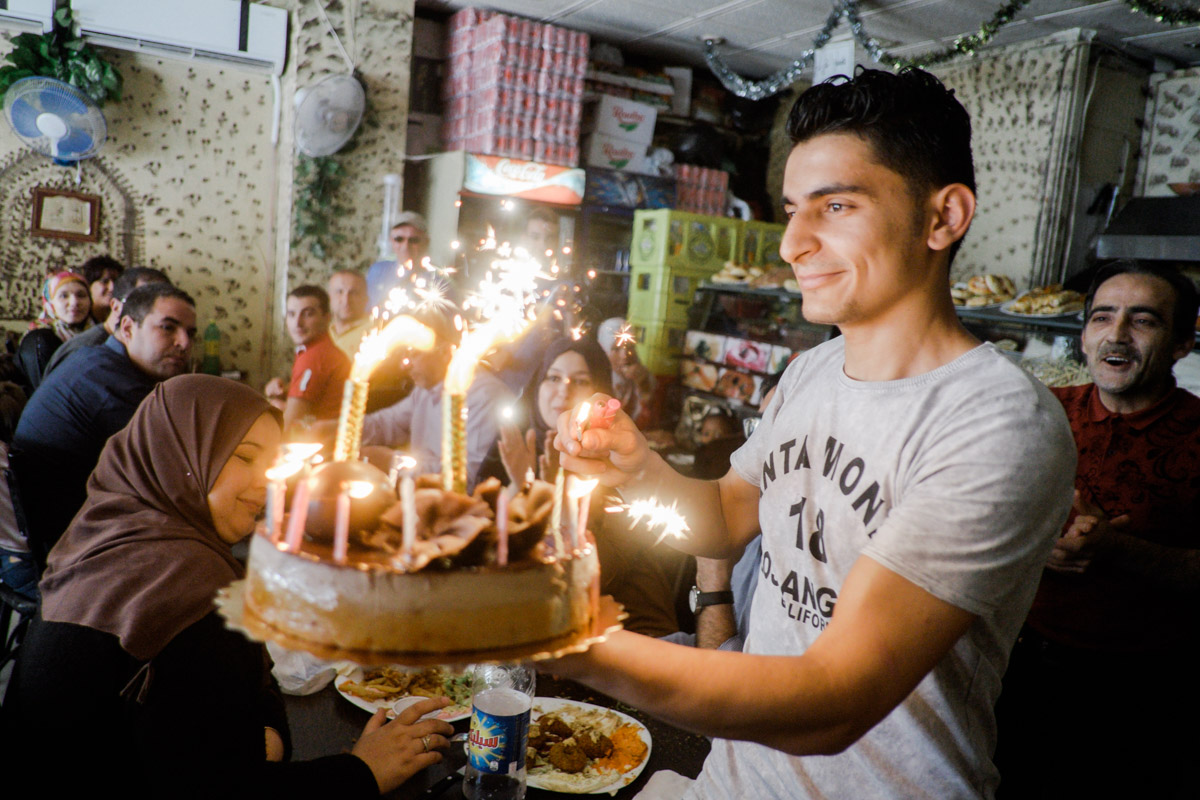
All waiters at Bawabat Istanbul, save one of them, Abu Jamil, who has been in Algeria since 2007, are young. Two are Algerians – they have picked up perfect Syrian accents – but the rest are Syrian. Most came to Algeria not knowing exactly what’s next. Should they stay, or continue, like so many others, onwards to Europe. Behind the restaurant counter hangs a framed portrait of a young man – a former waiter who is now in Germany.
Opening the restaurant became a way to retain a sense of normality in the new country.
“He left. Haraga,” says Turkman, using the North African term for migration. In fact, he says, there were five branches of Bawabat Istanbul in Algiers before, but only three are left. The other staff all left for Europe.
Basel Alaghwani, who was a student in Damascus before, is alone in Algiers, like many of the others. Six of them share an apartment in Bir Khadem, not far from the restaurant.
“I’m here in Algeria with nothing. No papers, no passport, nothing. Just me and my clothes,” he says.
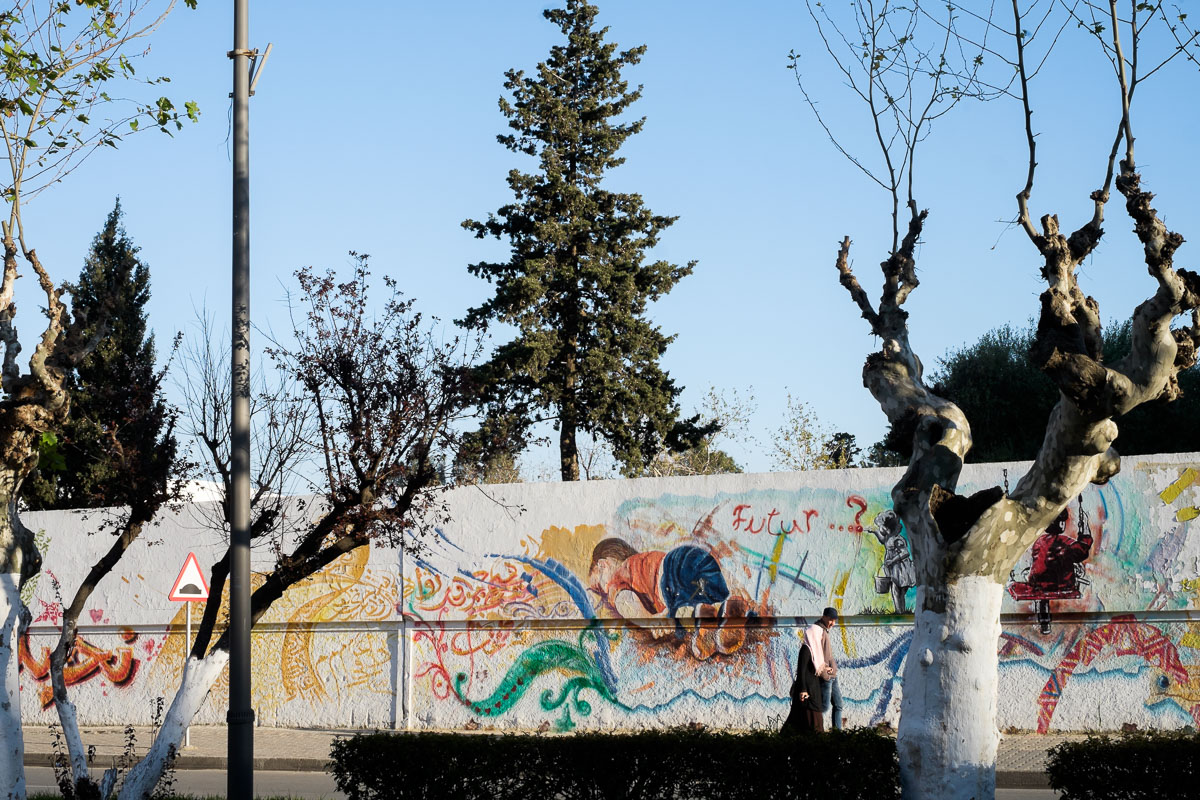
Alaghwani’s situation is shared by numerous Syrians today, not only in Algeria. Being a refugee means facing an unknown future – and an uncertain here and now. While Algeria has provided support to the Syrian refugees, including free access to schools and hospitals, refugees are not allowed to work. The only option is to work without papers, which is what many do, including many migrants and displaced people from western and central Africa. In fact, many low-paying sectors of the Algerian economy depend on this migrant workforce.
“Refugees and migrants are a strength to us. But we talk of them as clandestine, illegal, which is not fair. They are people who want to work, want to get a better life,” says Faten Hayed, journalist at the Algerian daily El Watan.
Being a refugee means facing an unknown future – and an uncertain here and now.
While Syrians have been received well in Algerian society, attitudes towards people from African countries are very different. Discrimination is commonplace, and there have been a number of violent attacks against migrants.
“This has to do with our own Algerian identity being destroyed by years of conflict. We inherited this idea from the French that all about us was dirty. Then we internalised that, and are now turning it against others,” says Hayed.
Until 2015, Syrians could enter Algeria without a visa, arriving by plane to the airport. But in March the same year, Algeria decided to follow other countries and impose visas on Syrian nationals. The only way to reach Algeria now is via the informal route going through Mali and Mauritania.
The only option is to work without papers, which is what many do, including many migrants and displaced people from western and central Africa.
“Algeria used to say, ‘You can come and that’s fine, you are our brothers’. But when they started to be alone in not demanding visas, they changed. They didn’t know what to do if suddenly a lot more people would arrive,” says Pascal Reyntjens at the International Organization for Migration in Algiers.
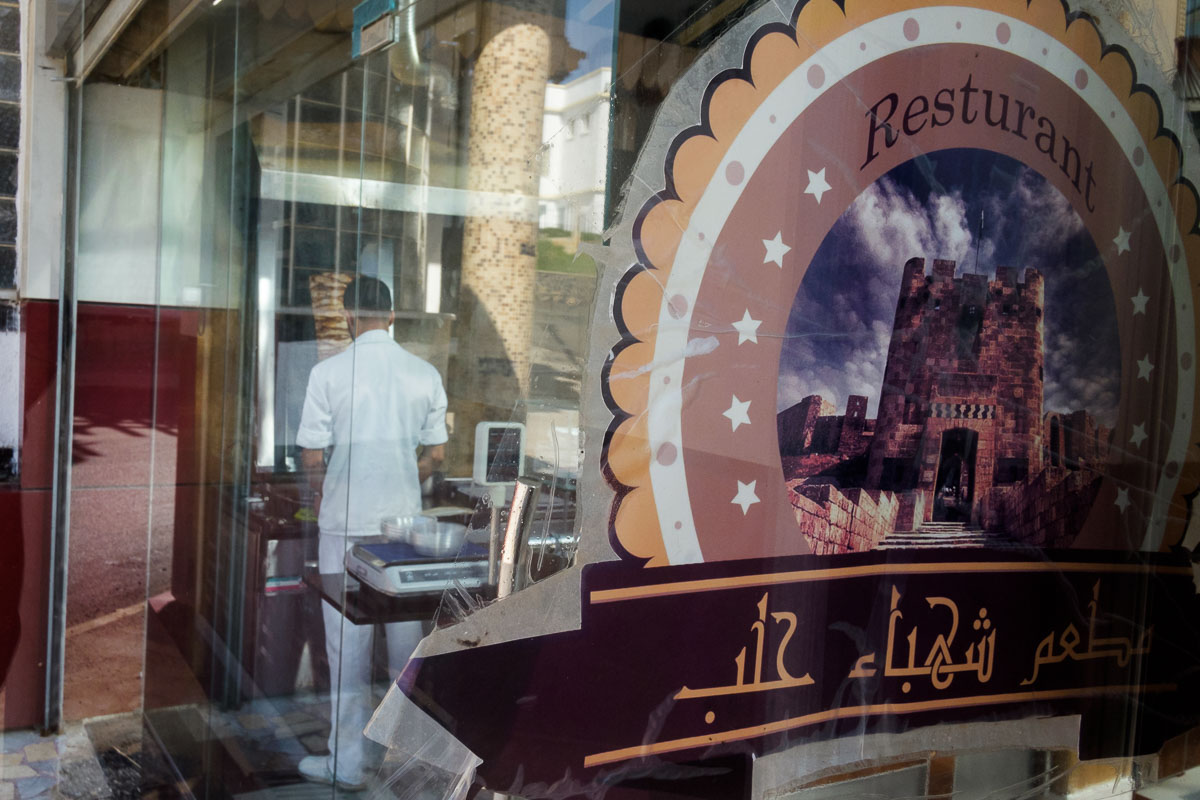
This means that life for many continues on a sidetrack, apart from formal society. In Baba Hassan, another suburb in southern Algiers, a Syrian restaurant called Shahaba’ Halab has also opened. Their menu is decorated with an image of Aleppo’s citadel; their dishes are familiar: falafel, hummus, sumac-tasting salads. There is a shawarma grill right inside the door, and a special counter for baklava, sold by the kilo. One of the staff is Anas Aamar, who came to Algeria two years ago.
“I was in Lebanon before, working in [the coastal town] Jounieh. I came to Algeria because the situation is better here. Not as political as in Lebanon. The problem is that you’re not allowed to work. You don’t have papers so you can’t do anything in your name: buy a car, get a home,” he says.
“The problem is that you’re not allowed to work. You don’t have papers so you can’t do anything in your name: buy a car, get a home.”
His colleague, Nour Derdar, carries a tray with lentil soup and hummus out to a table, then returns with empty plates piled on top of each other. She arrived in Algeria in 2015, not long before they began imposing visas, and lives with her mother and three kids in a house in Baba Hassan.
“Our situation is good, if I compare to Syrians elsewhere. There are no camps here, we can live better. My kids are in school. It’s taken a while to get used to the Algerian system, but they are doing alright,” she says.
Still, there is something sad in her eyes when she speaks. She left behind a life, a community, everything, only to start something new at a place she didn’t know. Baba Hassan, a suburb with long-standing ties to Syria, has many Syrian families who have lived here for generations. There are Syrian spice shops and date sellers, and small importers of clothes and fabric. But the story of Derdar and the other newcomers is entirely different: their migration was involuntary, pushed by force. And, for now, there is no going back.
“Most of all, I miss the hawa, the atmosphere of Syria,” says Abdallah at Bawabat Istanbul. “There is nothing like it, even though there is generosity and great feelings towards Syrians here.”
